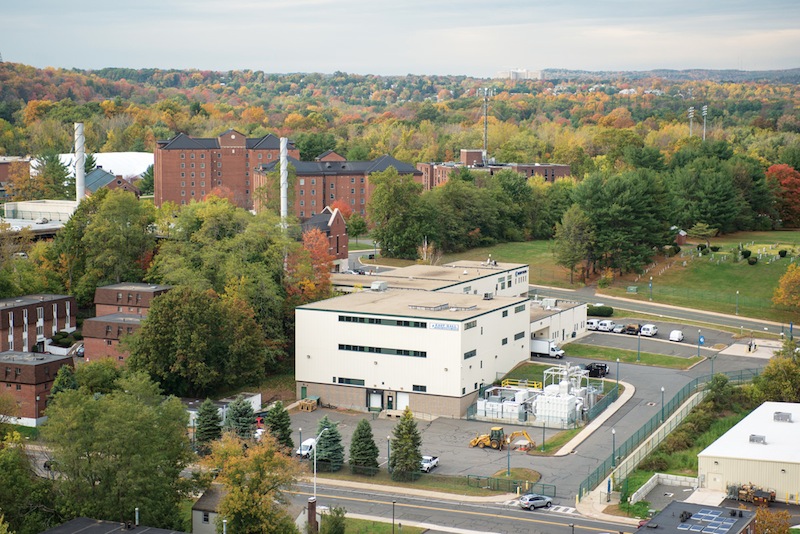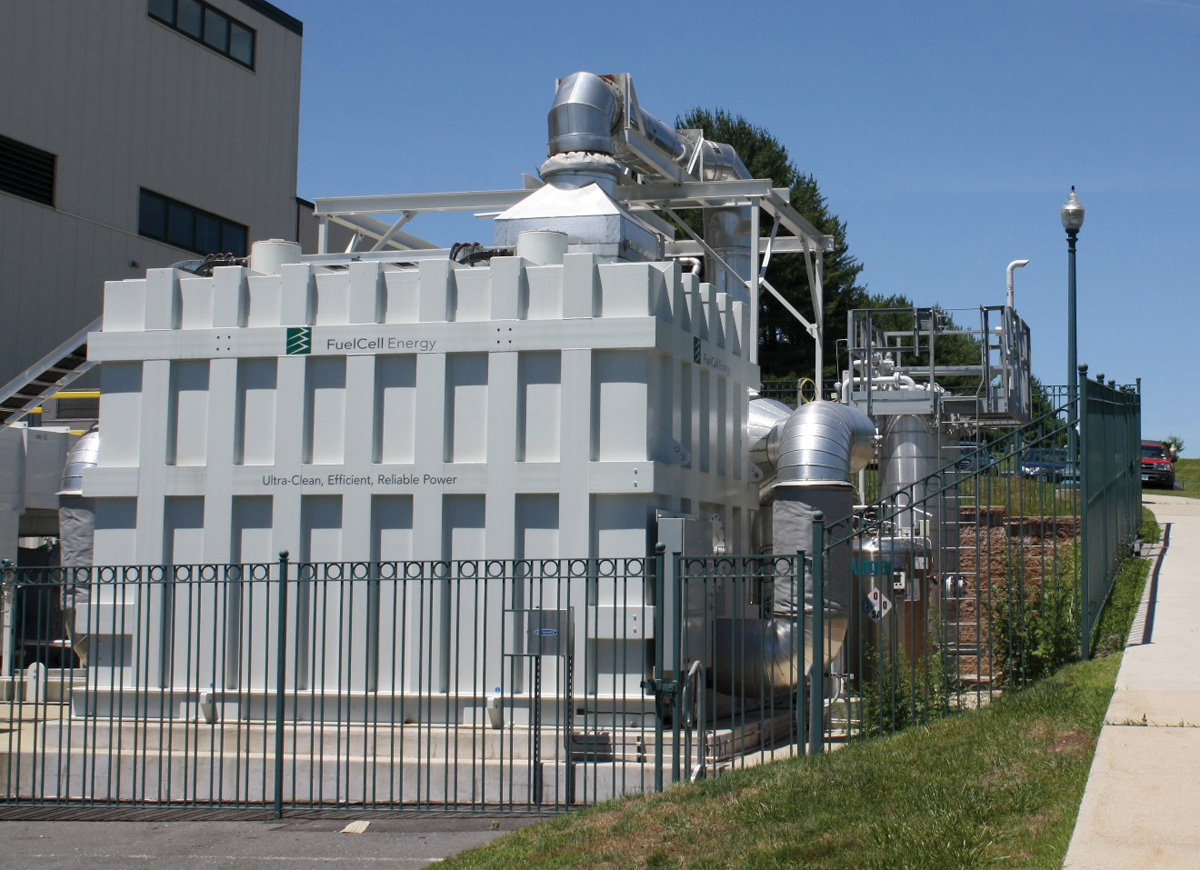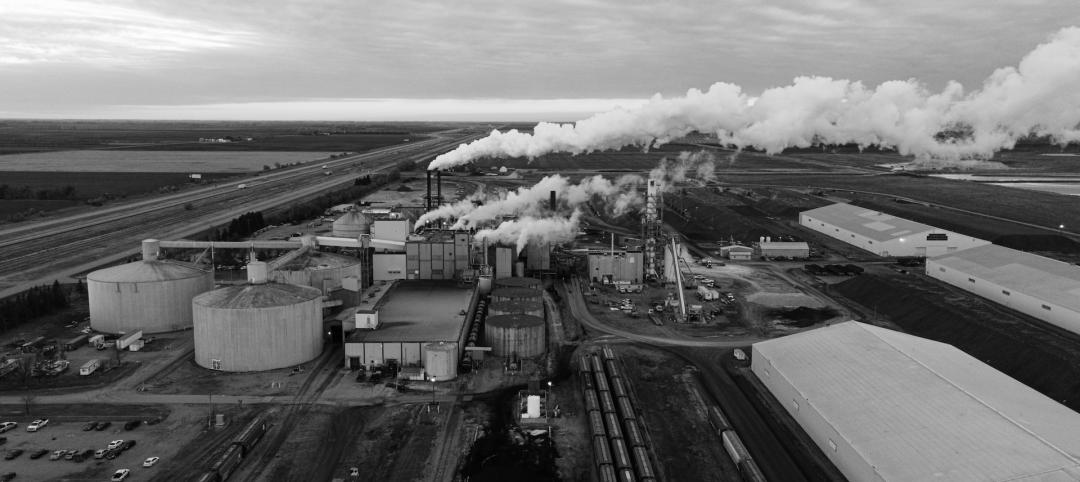Fuel cells have emerged as a small but potentially significant piece of the world’s energy puzzle. The U.S. Department of Energy estimated worldwide fuel cell system sales in 2013 at $1.3 billion, the first time the billion-dollar mark had been topped. Stationary power systems with an aggregate capacity of 150 MW were shipped in 2013, a 24% increase over the previous year.
Selling fuel cell power generation remains a tough business. One leading provider-installer-operator, FuelCell Energy Inc. (www.fuelcellenergy.com), stated in its 2014 annual report that its two biggest challenges to growth are reducing the total cost of fuel cells and getting major energy consumers to see the value that fuel-cell technology offers. The company reported net losses in each of its last five fiscal years.
FuelCell Energy is no Johnny-come-lately to this technology. Founded in 1969, the company has installed more than 100 plants operating at more than 50 sites in nine countries. A year ago, it entered into an agreement to install a 1.4-MW fuel cell plant that will provide about 30% of the power needs for the University of California Irvine Medical Center. Because that power will be generated without combustion, its exhaust will be virtually pollution free.
 The fuel cell contributes to the site’s energy security, resiliency, and sustainability. Photo courtesy FuelCell Energy
The fuel cell contributes to the site’s energy security, resiliency, and sustainability. Photo courtesy FuelCell Energy
Last November, Microsoft dedicated its $7.6 million zero-carbon data center in Cheyenne, Wyo. The facility draws power from a stationary fuel cell plant that converts biogas from a nearby municipal wastewater treatment facility into electricity. Microsoft, FuelCell Energy, and Siemens engineered and installed the power monitoring equipment for the data center.
Eighteen months ago, FuelCell Energy installed one of its 1.4-MW DFC1500 fuel cell power plants at Central Connecticut State University, in New Britain. The plant’s owner, Greenwood Energy, sells electricity and heat to CCSU under a long-term power purchase agreement. This is Greenwood’s first energy project with FuelCell Energy.
The plant integrates directly into the college’s existing energy infrastructure in a combined heat and power configuration. Rob Gagne, CCSU’s Plant Facilities Manager, says that the heat from the fuel cell plant produces 1,600–2,000 pounds of steam per hour. The steam is circulated across the 165-acre campus through a tunnel network and is used for heating and absorption cooling.
The plant provides about one-third of the 3,500–4,000 kw the university’s 40 buildings consume and cuts its annual electric power costs by $100,000.
Related Stories
Sustainability | Jul 27, 2023
USGBC warns against building energy code preemptions, rollbacks
In a recent editorial, the USGBC cited a growing number of U.S. state legislators who are “aiming to roll back building energy code standards and/or preempt local governments from advancing energy-efficient building codes.”
Resiliency | Jul 27, 2023
'Underground climate change' can damage building foundations, civil infrastructure
A phenomenon known as “underground climate change” can lead to damage of building foundations and civil infrastructure, according to a researcher at Northwestern University. When the ground gets hotter, it can expand and contract, causing foundations to move and sometimes crack.
Sustainability | Jul 19, 2023
California lawmakers approve governor’s plan to accelerate green construction
California lawmakers recently approved Gov. Gavin Newsom’s infrastructure streamlining plan that aims to accelerate clean energy and infrastructure projects.
Sustainability | Jul 13, 2023
Deep green retrofits: Updating old buildings to new sustainability standards
HOK’s David Weatherhead and Atenor’s Eoin Conroy discuss the challenges and opportunities of refurbishing old buildings to meet modern-day sustainability standards.
Mass Timber | Jul 11, 2023
5 solutions to acoustic issues in mass timber buildings
For all its advantages, mass timber also has a less-heralded quality: its acoustic challenges. Exposed wood ceilings and floors have led to issues with excessive noise. Mass timber experts offer practical solutions to the top five acoustic issues in mass timber buildings.
Codes | Jul 10, 2023
Water Demand Calculator outperforms traditional plumbing codes for energy, carbon, and water savings
Using IAPMO’s Water Demand Calculator tool can result in energy, carbon, and water savings as compared to using traditional plumbing specification methods in plumbing codes, according to a study by Arup.
Contractors | Jun 30, 2023
Construction industry task force aims for standardized carbon reporting
A newly formed Associated General Contractors of America (AGC) task force on decarbonization and carbon reporting will address the challenges around reporting and reducing carbon emissions in the construction industry.
Apartments | Jun 27, 2023
Dallas high-rise multifamily tower is first in state to receive WELL Gold certification
HALL Arts Residences, 28-story luxury residential high-rise in the Dallas Arts District, recently became the first high-rise multifamily tower in Texas to receive WELL Gold Certification, a designation issued by the International WELL Building Institute. The HKS-designed condominium tower was designed with numerous wellness details.
Green | Jun 26, 2023
Federal government will spend $30 million on novel green building technologies
The U.S. General Services Administration (GSA), and the U.S. Department of Energy (DOE) will invest $30 million from the Inflation Reduction Act to increase the sustainability of federal buildings by testing novel technologies. The vehicle for that effort, the Green Proving Ground (GPG) program, will invest in American-made technologies to help increase federal electric vehicle supply equipment, protect air quality, reduce climate pollution, and enhance building performance.
Industrial Facilities | Jun 20, 2023
A new study presses for measuring embodied carbon in industrial buildings
The embodied carbon (EC) intensity in core and shell industrial buildings in the U.S. averages 23.0 kilograms per sf, according to a recent analysis of 26 whole building life-cycle assessments. That means a 300,000-sf warehouse would emit 6,890 megatons of carbon over its lifespan, or the equivalent of the carbon emitted by 1,530 gas-powered cars driven for one year. Those sobering estimates come from a new benchmark study, “Embodied Carbon U.S. Industrial Real Estate.”

















